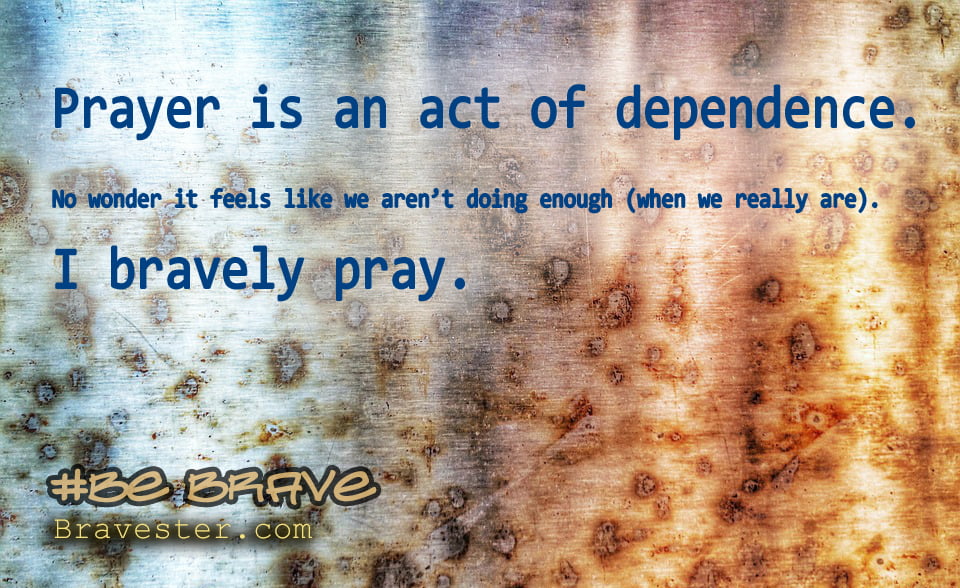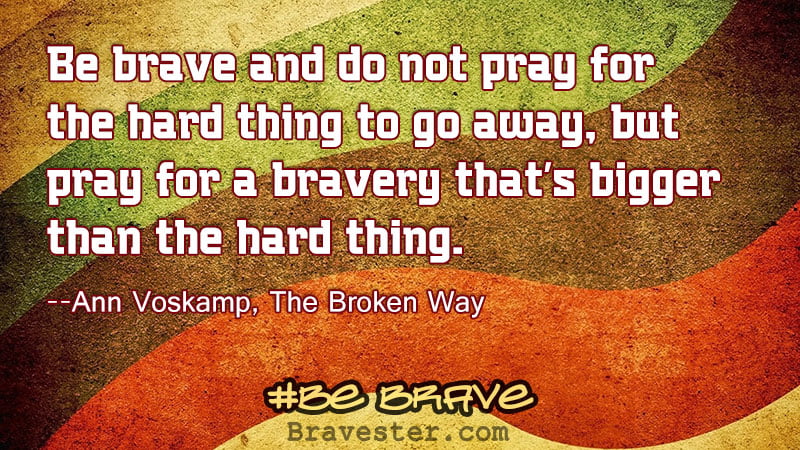Prayer Changes Me—Literally Physically Changes Me (On a Brain Scan)

I pray to you, O Lord, my rock.
Do not turn a deaf ear to me.
For if you are silent,
I might as well give up and die.
Listen to my prayer for mercy
as I cry out to you for help,
as I lift my hands toward your holy sanctuary. Psalm 28:1-2
I don’t know where I found this picture. I’ve searched to find the credit and I can’t find it. But I saw it and it caught me. Took my breath away. I sent it to my son in prison and he had the same response.
I feel like God hears my prayers when I look at this. This picture pictures how I want my prayers to be heard. I breathe a prayer and God is right there at the ready sincerely looking at me, through me, “getting” me.
I wrote this originally here, The Brave Pray:
Prayer is an act of dependence. And this may be the rub. Who likes being dependent? There has got to be something more I can do. Prayer feels like it is not enough. Prayer can make you feel like you are not enough in this big and fear-filled world. Prayer exposes vulnerability in us. We’d rather numb that somehow.
Then I look at this picture. I can depend on God when I know he is there like that. And he is! This is what I’ve learned over my years of trusting the Promiser.
Because of my years of dependent prayer (most often not completed sentences by the way, I ramble my heart out to God so much), I am now understanding that my brain has changed.
The brain research that is continually being released is fascinating. And often times hard to comprehend fully as it is so “scientific.” Hence why I summarize from other people’s writings. This brain research is fascinating.
In prayer there are other brain systems at work, because spirituality draws on every part of who we are. Our frontal lobe is rationally thinking about the experience, understanding it in terms of theology and application. The limbic system helps to provide an emotional flavor to the experience. At the same time, the amygdala, which is often the center of our experiences of fear and anger, might be soothed or calmed. Our anterior cingulate would help to translate these thoughts and emotions into compassion and empathy toward other people.
These structures of the brain are highly active during a spiritual experience. While the brain is engaged in an unusual way, it is also seems to be functioning normally. Some have argued that spirituality is a hallucination or caused by epilepsy. But unlike those dysfunctions, spirituality seems to enhance the brain’s capacity in a number of ways, it has healthful effects on the rest of the body, and it is personally meaningful. —What Your Body Knows About God, Rob Moll, P. 24
What is this picture doing in my brain, with all these specific pieces of my brain, to create such an emotional connection?
This next fact has got to wow you:
Twelve minutes of attentive and focused prayer every day for eight weeks changes the brain significantly enough to be measured in a brain scan. Not only that, but it strengthens areas of the brain involved in social interaction, increasing our sense of compassion and making us more sensitive to other people. It also reduces stress, bringing another measurable physical effect—lower blood pressure. Prayer in this deeper, more attentive way also strengthens the part of the brain that helps us override our emotional and irrational urges. Prayer that seeks communion with God actually makes us more thoughtful and rational, enhances our sense of peace and well-being, and makes us more compassionate and responsive to the needs of other people. —What Your Body Knows About God, Rob Moll, p. 15
Brain research shows that fifteen minutes a day in meditation or thoughtful communion with the God of love results in measurable development of the prefrontal cortex, especially in the anterior cingulate cortex (ACC). This is the area where we experience love, compassion and empathy. The healthier the ACC, the calmer the amygdala (alarm center), and the less fear and anxiety we experience. Truly, love casts out all fear! —The God-Shaped Brain, Timothy R. Jennings, p. 132-133.
In our world full of scarcity that is becoming even more and more polarized, we need more prayer! Not only for God to intervene on our behalves but also to change people’s brains to become more compassionate and responsive to the needs of other people. Please can we pray more!
Charles Finney, the theologian who is also credited with leading the Second Great Awakening and led on social reforms such as the abolition of slavery wrote this about prayer:
Sometimes the conduct of the wicked drives Christians to prayer, breaks them down, and makes them sorrowful and tender-hearted, so that they can weep day and night, and instead of scolding the wicked they pray earnestly for them. Then you may expect a revival. Indeed, it is begun already.
This prayer-listening God is right there to do something. And my brain is changing. Literally changing.
Please can we pray more! The brave pray.








Comments
Trackbacks & Pingbacks
[…] prayer is never wasted. Even when God doesn’t answer as expected, prayer changes us (with brain scan proof). It keeps us connected to him and to others, opening our hearts to his […]
[…] Read: Prayer Changes Me–Literally Physically Changes Me (On a Brain Scan) […]